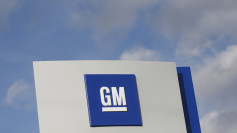President Donald Trump announced Wednesday a sweeping 25% tariff on all foreign-manufactured cars, light trucks, and key auto parts, a move that jolted global markets and intensified concerns of a broadening trade war. The measure, which takes effect April 2, applies to all imported vehicles and includes specific components such as engines, transmissions, powertrain parts, and electrical systems.
"This will continue to spur growth that you've never seen before," Trump said during a White House signing ceremony, framing the tariffs as a corrective response to decades of trade imbalances. The White House estimates the tariffs will generate up to $100 billion annually in duties.
The announcement had immediate ripple effects across financial markets and the global automotive sector. U.S. stocks dropped following a press briefing by White House Press Secretary Karoline Leavitt, who previewed the policy earlier in the day.
- Dow Jones Industrial Average: -130 points (-0.3%)
- S&P 500: -1.1%
- Nasdaq Composite: -2%
- Tesla (TSLA): -5.5%
- General Motors (GM): -3%
- Ford (F): Decline in aftermarket trading
- BMW (BMW.DE), Porsche (P911.DE), Volkswagen (VOW.DE), Mercedes-Benz (MBG.DE): Declined in German trading
The tariffs will hit not only overseas automakers but also U.S. manufacturers who rely on global supply chains. Companies such as Ford, GM, and Stellantis assemble vehicles and source parts in Canada, Mexico, and China. Analysts warn that the sweeping nature of the tariffs could drive up production costs and disrupt North American supply lines.
"These initial tariffs (if they hold in their current form) would be a hurricane-like headwind to foreign (and many US) automakers and ultimately push the average price of cars up $5k to $10k depending on the make/model/price point," Wedbush analyst Dan Ives wrote in a note Wednesday evening. "We continue to believe this is some form of negotiation and these tariffs could change by the week... We expect to learn more over the next week but for now investors will be frustrated by this announcement with few details."
According to trade data analyzed by the Cato Institute, Canada and Mexico accounted for nearly $120 billion-or 47%-of all U.S. motor vehicle imports in 2023. Those two countries also made up nearly the same share of imported auto parts, underscoring the extent of cross-border production within the sector.
Porsche indicated it would pass the cost of tariffs directly to consumers, while BMW stated it would absorb additional costs temporarily. Automakers are now evaluating how to adjust pricing strategies, logistics, and sourcing to mitigate the impact.
The timing of the tariff rollout coincides with Trump's declaration of April 2 as "Liberation Day," signaling further tariff measures to come. Other countries have "ripped [us] off," the former president said, claiming the new tariffs are "reciprocal."
Despite the aggressive stance, Trump offered a softer tone earlier this week. "I may give a lot of countries breaks," he said from the Oval Office. "I'm embarrassed to charge them what they've charged us."
The latest round of tariffs follows a cascade of similar moves throughout March. Earlier this month, the administration levied a 20% tariff on Chinese goods and imposed duties on all aluminum and steel imports, provoking swift retaliation from major trading partners including China, the European Union, and Canada.
Federal Reserve Chair Jerome Powell added to concerns about the broader impact of tariffs, stating in a recent press conference that trade restrictions account for "a good part" of current inflationary pressures.






